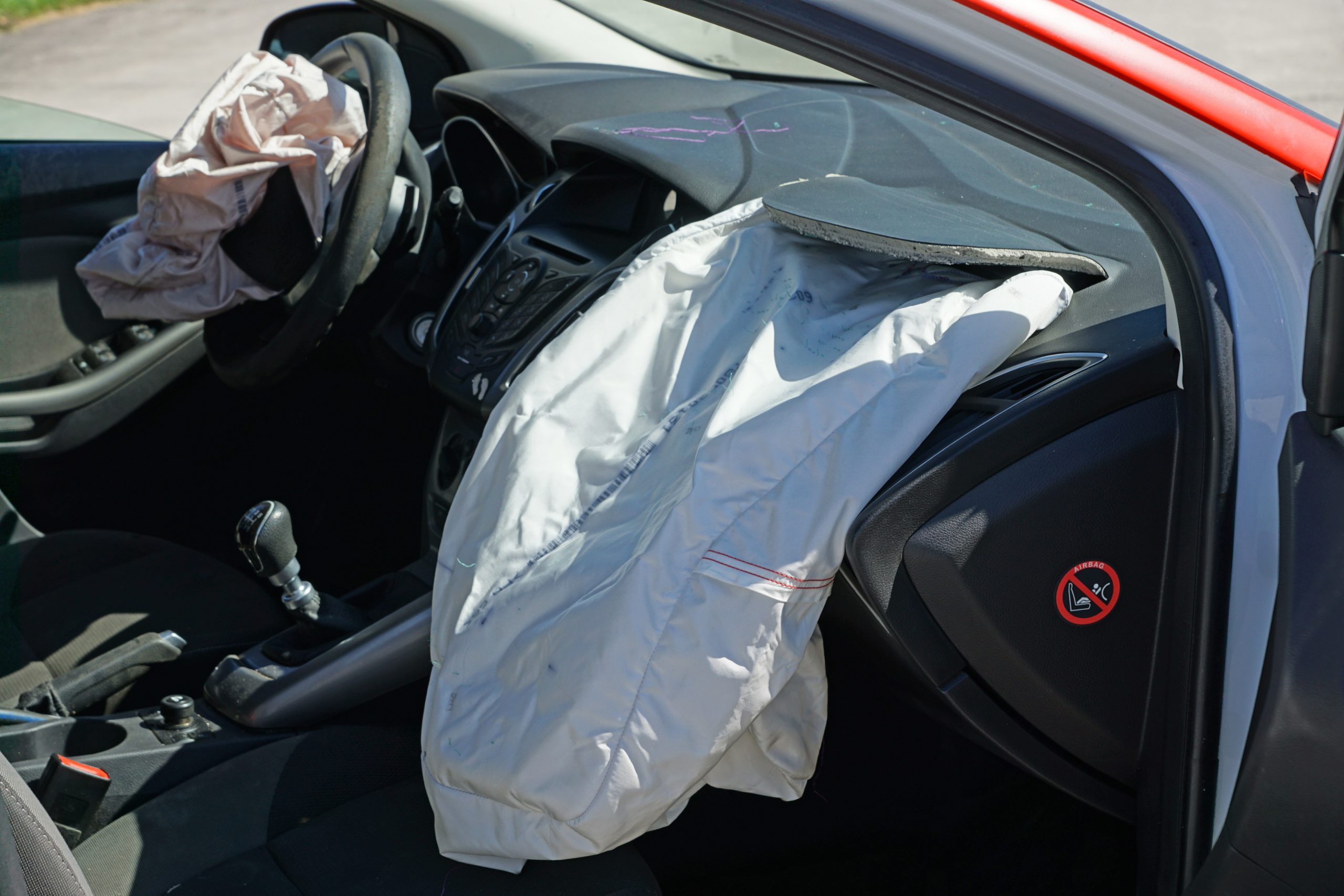 A chemical plant explosion, sudden and dangerous, causes chaos when the workers try to escape. During that exodus, a worker is trampled by his colleagues as they attempt to flee. Who then bears responsibility for the injuries caused by this trampling? Is it the other workers? Is it their managing company? Is it the owner of the chemical plant?
A chemical plant explosion, sudden and dangerous, causes chaos when the workers try to escape. During that exodus, a worker is trampled by his colleagues as they attempt to flee. Who then bears responsibility for the injuries caused by this trampling? Is it the other workers? Is it their managing company? Is it the owner of the chemical plant?
Just outside Geismar, Louisiana, multiple injuries resulted from a chemical explosion at the William Olefins plant. As a result, the numerous injured parties filed lawsuits against several defendants for those injuries. The defending parties included the Chicago Bridge and Iron Company collective (“CB&I”). One of the plaintiffs was Ken Haydel, whom CB&I had hired to work in the Olefins plant. Haydel alleged that he was pushed down and trampled by other CB&I workers following the explosion and that CB&I is responsible for the “intentional acts” committed by their employees within the scope of their employment.
A hearing occurred at the trial court on CB&I’s motion for summary judgment. CB&I sought to evade specific legal claims Haydel made before trial. The trial court granted CB&I’s motion for summary judgment, and Haydel appealed the trial court decision.
 Insurance Dispute Lawyer Blog
Insurance Dispute Lawyer Blog




 Expert testimony is one tool litigants can use to prove their arguments in a court of law. Expert witnesses are highly credible individuals with advanced knowledge in a particular field in a lawsuit. The testimony of experts is meant to assist the court in understanding the evidence in matters of fact. But not just anyone claiming to be an expert can testify on behalf of a litigant. As homeowners Blake and Courtney Freeman learned in a painful way, the testimony of six expert witnesses they offered was denied admissibility because it failed to meet Louisiana’s standards for expert testimony evidence.
Expert testimony is one tool litigants can use to prove their arguments in a court of law. Expert witnesses are highly credible individuals with advanced knowledge in a particular field in a lawsuit. The testimony of experts is meant to assist the court in understanding the evidence in matters of fact. But not just anyone claiming to be an expert can testify on behalf of a litigant. As homeowners Blake and Courtney Freeman learned in a painful way, the testimony of six expert witnesses they offered was denied admissibility because it failed to meet Louisiana’s standards for expert testimony evidence. Car accidents are traumatic experiences that occur every day across Louisiana. An accident can cause initial damage upon impact, but many accident victims also spend months and sometimes years coping with accident-related injuries.
Car accidents are traumatic experiences that occur every day across Louisiana. An accident can cause initial damage upon impact, but many accident victims also spend months and sometimes years coping with accident-related injuries. Aleashia Clarkston’s employment with the Iberia Parish School Board was terminated in April 2013 after she was accused of abusing the school’s Leave of Absence policy. She had been on medical leave since September 2012. Clarkston objected to what she believed was a wrongful termination. In addition, she claimed she was denied due process rights as a tenured employee.
Aleashia Clarkston’s employment with the Iberia Parish School Board was terminated in April 2013 after she was accused of abusing the school’s Leave of Absence policy. She had been on medical leave since September 2012. Clarkston objected to what she believed was a wrongful termination. In addition, she claimed she was denied due process rights as a tenured employee.  It’s a common scenario: a potential buyer visits a car lot, finds a vehicle he’d like to test drive, and heads out onto the road with the salesperson in the passenger seat. What happens, though, if an accident occurs during the test drive? Suppose the potential buyer loses control of the vehicle while driving — who is responsible for injuries and property damage that result?
It’s a common scenario: a potential buyer visits a car lot, finds a vehicle he’d like to test drive, and heads out onto the road with the salesperson in the passenger seat. What happens, though, if an accident occurs during the test drive? Suppose the potential buyer loses control of the vehicle while driving — who is responsible for injuries and property damage that result? Lawsuits resulting from car accidents can raise many difficult questions. Determining the precise events that led to an accident can be complicated and require courts to make close calls about witnesses’ credibility. Furthermore, parties may question whether they are entitled to certain damages if they prevail in their lawsuit. These questions arose in a lawsuit involving a car accident in Monroe, Louisiana.
Lawsuits resulting from car accidents can raise many difficult questions. Determining the precise events that led to an accident can be complicated and require courts to make close calls about witnesses’ credibility. Furthermore, parties may question whether they are entitled to certain damages if they prevail in their lawsuit. These questions arose in a lawsuit involving a car accident in Monroe, Louisiana.  Car accidents are unfortunate but commonplace occurrences in modern life. The resulting lawsuits can involve complicated arguments over the allocation of fault between the drivers involved and the appropriate amount of damages awarded by the Court. Such questions arose in a lawsuit involving a car accident in Ouachita Parish, Louisiana.
Car accidents are unfortunate but commonplace occurrences in modern life. The resulting lawsuits can involve complicated arguments over the allocation of fault between the drivers involved and the appropriate amount of damages awarded by the Court. Such questions arose in a lawsuit involving a car accident in Ouachita Parish, Louisiana.  As more and more aspects of our lives are conducted online, data breaches have become an increasingly troubling prospect. If you have been involved in a data breach, you have likely worried about potential adverse effects and the possibility that you could become a victim of identity theft. However, the mere fact that a person’s information is compromised in a data breach does not necessarily mean victory in a lawsuit for damages.
As more and more aspects of our lives are conducted online, data breaches have become an increasingly troubling prospect. If you have been involved in a data breach, you have likely worried about potential adverse effects and the possibility that you could become a victim of identity theft. However, the mere fact that a person’s information is compromised in a data breach does not necessarily mean victory in a lawsuit for damages.  Sometimes words that we think have clear meanings become less than clear when used in the law. For instance, if a state statute prohibits cars from driving on park grounds, we would naturally conclude that a regular passenger vehicle is forbidden from entering the park. However, what about a toy car? Would a toy car be banned as well? It would be ridiculous to think that the legislature intended to forbid toy cars and passenger vehicles from park property. In some cases, courts are called upon to apply statutes to situations that, based on the plain language of the law, are not entirely clear. On the other hand, in cases where the rule is clearly written, Louisiana courts favor a direct application of the law.
Sometimes words that we think have clear meanings become less than clear when used in the law. For instance, if a state statute prohibits cars from driving on park grounds, we would naturally conclude that a regular passenger vehicle is forbidden from entering the park. However, what about a toy car? Would a toy car be banned as well? It would be ridiculous to think that the legislature intended to forbid toy cars and passenger vehicles from park property. In some cases, courts are called upon to apply statutes to situations that, based on the plain language of the law, are not entirely clear. On the other hand, in cases where the rule is clearly written, Louisiana courts favor a direct application of the law.